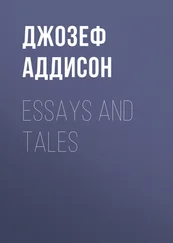Noah Webster - A Collection of Essays and Fugitiv Writings
Здесь есть возможность читать онлайн «Noah Webster - A Collection of Essays and Fugitiv Writings» — ознакомительный отрывок электронной книги совершенно бесплатно, а после прочтения отрывка купить полную версию. В некоторых случаях можно слушать аудио, скачать через торрент в формате fb2 и присутствует краткое содержание. Жанр: foreign_prose, foreign_antique, на английском языке. Описание произведения, (предисловие) а так же отзывы посетителей доступны на портале библиотеки ЛибКат.
- Название:A Collection of Essays and Fugitiv Writings
- Автор:
- Жанр:
- Год:неизвестен
- ISBN:нет данных
- Рейтинг книги:5 / 5. Голосов: 1
-
Избранное:Добавить в избранное
- Отзывы:
-
Ваша оценка:
- 100
- 1
- 2
- 3
- 4
- 5
A Collection of Essays and Fugitiv Writings: краткое содержание, описание и аннотация
Предлагаем к чтению аннотацию, описание, краткое содержание или предисловие (зависит от того, что написал сам автор книги «A Collection of Essays and Fugitiv Writings»). Если вы не нашли необходимую информацию о книге — напишите в комментариях, мы постараемся отыскать её.
A Collection of Essays and Fugitiv Writings — читать онлайн ознакомительный отрывок
Ниже представлен текст книги, разбитый по страницам. Система сохранения места последней прочитанной страницы, позволяет с удобством читать онлайн бесплатно книгу «A Collection of Essays and Fugitiv Writings», без необходимости каждый раз заново искать на чём Вы остановились. Поставьте закладку, и сможете в любой момент перейти на страницу, на которой закончили чтение.
Интервал:
Закладка:
3
The veneration we have for a great character, ceases with an intimate acquaintance with the man. The same principle is observable in the body. High seasoned food, without frequent intervals of abstinence, loses its relish. On the other hand, objects that make slight impressions at first, acquire strength by repetition. An elegant simplicity in a building may not affect the mind with great pleasure at first light; but the pleasure will always increase with repeated examinations of the structure. Thus by habit, we become excessively fond of food which does not relish at first tasting; and strong attachments between the sexes often take place from indifference, and even from aversion.
4
Great caution should be observed in teaching children to pronounce the letters of the alphabet. The labials are easily pronounced; thus the first words a child can speak are papa and mama . But there are some letters, particularly l and r , which are of difficult pronunciation, and children should not be pressed to speak words in which they occur. The difficulty may produce a habit of stammering.
5
How different this practice from the manner of educating youth in Rome, during the flourishing ages of the republic! There the attention to children commenced with their birth; an infant was not educated in the cottage of a hireling nurse, but in the very bosom of its mother, whose principal praise was, that she superintended her family. Parents were careful to choose some aged matron to take care of their children; to form their first habits of speaking and acting; to watch their growing passions, and direct them to their proper objects; to guard them from all immodest sports, preserve their minds innocent, and direct their attention to liberal pursuits.
"—Filius—non in cella emptæ nutricis sed gremio ac sinu matris educabatur, cujus præcipua laus, tueri domum, et inservire liberis. Eligebatur autem aliqua major natu propinqua, cujus probatis spectatisque moribus, omnis cujuspiam familiæ soboles committeretur, coram qua neque dicere fas erat quod turpe dictu, neque facere quod inhonestum factu videretur. Ac non studia modo curasque, sed remissiones etiam lusus que puerorum, sanctitate quadam ac verecundia temperabat." In this manner were educated the Gracchi, Cæsar, and other celebrated Romans. "Quæ disciplina ac severitas eo pertinebat, ut sincera et interga et nullis pravitatibus detorta unius cujusque natura, toto statem pectore, arriperet artes honestas."– Tacitus de Orat. Dial. 28.
The historian then proceeds to mention the corruption of manners, and the vicious mode of Education, in the later ages of Rome. He says, children were committed to some maid, with the vilest slaves; with whom they were initiated in their low conversation and manners. "Horum fabulis et erroribus teneri slatim et rudes animi imbuuntur; nec quis quam in toto domo pensi habet, quid coram infante domino aut dicat aut faciat."– Ibid. 29.
6
The practice of employing low characters in schools is not novel—Ascham, preceptor to Queen Elizabeth, gives us the following account of the practice in his time. "Pity it is that commonly more care is had; yea and that among very wise men, to find out rather a cunning man for their horse, than a cunning man for their children. They say, nay, in word; but they do so, in deed. For to one they will give a stipend of two hundred crowns, and loth to offer the other two hundred shillings. God, that sitteth in the Heaven, laugheth their choice to scorn and rewardeth their liberality as it should: for he suffereth them to have tame and well ordered horses ; but wild and unfortunate children : and therefore in the end they find more pleasure in their horse, than comfort in their child."
This is old language , but the facts stated are modern truths . The barbarous Gothic practice has survived all the attacks of common sense, and in many parts of America, a gentleman's groom is on a level with his schoolmaster, in point of reputation. But hear another authority for the practice in England.
"As the case now stands, those of the first quality pay their tutors but little above half so much as they do their footmen ."— Guardian , No. 94.
"'Tis monstrous indeed that men of the best estates and families are more solicitous about the tutelage of a favorite dog or horse , than of their heirs mate ."— Ibm.
7
The fact related by Justin, of an ancient people, will apply universally. "Tanto plus in illis proficit victiorum ignoratio, quam in his cognitio virtutis." An ignorance of vice has a better effect, than a knowlege of virtue.
8
Plus ibi boni mores valent, quam alibi bonæ leges.
Tac. de Mor. Germ. 19.
9
Spirit of Laws. Book 4.
10
The power of entailing real estates is repugnant to the spirit of our American governments.
11
I have known instructions from the inhabitants of a county, two thirds of whom could not write their names. How competent must such men be to decide an important point in legislation!
12
Middleton's life of Cicero, volume 1, page 14.
13
It is worthy of remark, that in proportion as laws are favorable to the equal rights of men, the number of crimes in a state is diminished; except where the human mind is debased by extreme servitude, or by superstition. In France, there are but few crimes; religion and the rigor of a military force prevent them; perhaps also, ignorance in the peasantry may be assigned as another reason. But in England and Ireland the human mind is not so depressed, yet the distribution of property and honors is not equal; the lower classes of people, bold and independent, as well as poor, feel the injuries which flow from the feudal system, even in its relaxed state; they become desperate, and turn highwaymen. Hence those kingdoms produce more culprits than half Europe besides.
The character of the Jews, as sharpers, is derived from the cruel and villanous proscriptions, which they have suffered from the bigotry of Christians in every part of Europe.
Most of the criminals condemned in America are foreigners. The execution of a native, before the revolution, was a novelty. The distribution of property in America and the principles of government favor the rights of men; and but few men will commence enemies to society and government, if they can receive the benefits of them. Unjust governments and tyrannical distinctions have made most of the villains that ever existed.
14
It has been already observed that a child always imitates what he sees and hears: For this reason, he should hear no language which is not correct and decent. Every word spoken to a child, should be pronounced with clearness and propriety. Banish from children all diminutive words, all whining and all bad grammar. A boy of six years old may be taught to speak as correctly, as Cicero did before the Roman Senate.
15
Nothing can be more fatal to domestic happiness in America, than a taste for copying the luxurious manners and amusements of England and France. Dancing, drawing and music, are principal articles of education in those kingdoms; therefore every girl in America must pass two or three years at a boarding school, tho her father cannot give her a farthing when she marries. This ambition to educate females above their fortunes pervades every part of America. Hence the disproportion between the well bred females and the males in our large towns. A mechanic or shopkeeper in town, or a farmer in the country, whose sons get their living by their father's employments, will send their daughters to a boarding school, where their ideas are elevated, and their views carried above a connexion with men in those occupations. Such an education, without fortune or beauty, may possibly please a girl of fifteen, but must prove her greatest misfortune. This fatal mistake is illustrated in every large town in America. In the country, the number of males and females, is nearly equal; but in towns, the number of genteelly bred women is greater than of men; and in some towns, the proportion is, as three to one.
Читать дальшеИнтервал:
Закладка:
Похожие книги на «A Collection of Essays and Fugitiv Writings»
Представляем Вашему вниманию похожие книги на «A Collection of Essays and Fugitiv Writings» списком для выбора. Мы отобрали схожую по названию и смыслу литературу в надежде предоставить читателям больше вариантов отыскать новые, интересные, ещё непрочитанные произведения.
Обсуждение, отзывы о книге «A Collection of Essays and Fugitiv Writings» и просто собственные мнения читателей. Оставьте ваши комментарии, напишите, что Вы думаете о произведении, его смысле или главных героях. Укажите что конкретно понравилось, а что нет, и почему Вы так считаете.












